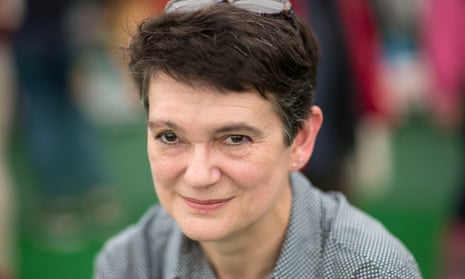Diane Coyle, the outgoing vice-chairman of the BBC Trust, has called for an end to the top-slicing of the licence fee and warned against the further erosion of the BBC’s independence by parliament.
Coyle said she had felt depressed and frustrated at the restrictions imposed on her role by the structure of the BBC Trust, which has come under fire for its role in successive BBC scandals from the Savile crisis to multimillion payouts to departing BBC executives.
She said she was surprised not even to be shortlisted for the trust chair’s job, which went to Rona Fairhead last year, despite being its deputy and its acting chair following the departure of Lord Patten.
“I didn’t expect to get it in a million years but I was surprised not to be shortlisted,” she told a City University event about the future of the BBC on Thursday.
Asked what it felt like to be in the eye of the storm, Coyle said: “It was pretty depressing sometimes. We felt because of the charter we could not intervene in the way the governors would have intervened in some of these issues. It was rough feeling responsible but somehow disempowered from doing anything about it.”
Coyle said the BBC’s independence from MPs and government was being eroded by the use of the BBC licence fee for other funding purposes, including the BBC World Service and broadband rollout, as well as the increasing number of times BBC executives were called to give evidence before parliament.
“Over time there has been an accumulation of changes. It adds up to quite an erosion of the BBC’s independence,” she said. “Top slicing has to stop. It is undermining the accountability and independence of the BBC.”
The recent House of Commons culture, media and sport select committee report on the future funding of the BBC raised the prospect of further top slicing, but only for broadcasting purposes.
Coyle said she was “worried” about the future independence of the BBC and said it should be part of the conversation around the BBC’s charter renewal, due by the end of 2016.
Coyle admitted she was disappointed the BBC had not made more progress in terms of diversity, both on and off screen, which she blamed in part on the BBC’s need to cut costs and avoid compulsory redundancies.
“It’s a very important issue, there has been progress, it has been less than I would like, partly because it is a shrinking organisation where they have been trying to avoid compulsory redundancies and that has slowed down the process,” she said. “Would I like it to be faster? Yes I would.”
Coyle may be the first member of the trust to use a Star Trek analogy to explain her thinking about its future. She said it had to be “reprogrammed”, following the lead of a young Kirk and Spock.
“I’m a big Star Trek fan. There’s an episode called Kobayashi Maru where the young Kirk and Spock are the only Star Fleet cadets to get out safely [from a training exercise]. They managed that because Spock reprogrammed the software. My answer to your question would be, you have to reprogramme the software.”

Comments (…)
Sign in or create your Guardian account to join the discussion